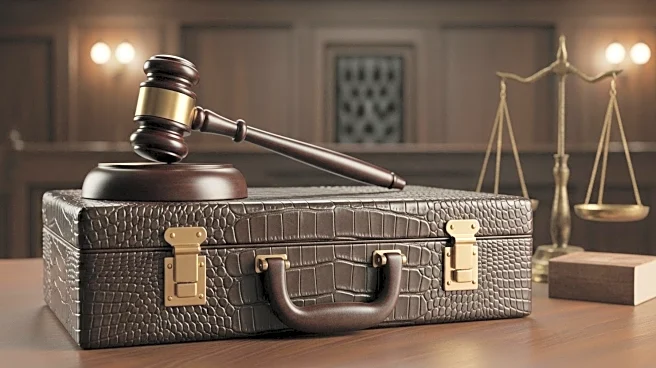What's Happening?
Barbara Lagoa, an appeals court judge, has blocked the shutdown of the controversial 'Alligator Alcatraz' immigration facility in Florida. Her husband, Paul Huck, is linked to Governor Ron DeSantis through his law firm, which has received substantial contracts from the state. Lagoa's ruling has allowed the facility to remain operational, despite criticisms of its harsh conditions. The connection between Lagoa's judicial decisions and her husband's business ties to DeSantis has sparked concerns about potential conflicts of interest.
Why It's Important?
The decision to keep 'Alligator Alcatraz' open has significant implications for immigration policy and detainee rights in Florida. The facility's operation under scrutiny highlights the intersection of legal, political, and ethical considerations in judicial rulings. The perceived conflict of interest due to Lagoa's husband's ties to DeSantis raises questions about judicial impartiality and the influence of political connections on legal outcomes. This situation may affect public trust in the judiciary and the administration's handling of immigration issues.
What's Next?
The plaintiffs, including environmental groups and the Miccosukee Tribe of Indians, plan to challenge the appeals court ruling. This legal battle could lead to further examination of the facility's compliance with federal regulations and environmental impact. Political and legal stakeholders will likely engage in debates over the ethical dimensions of Lagoa's involvement in the case, potentially influencing future judicial appointments and decisions.
Beyond the Headlines
The case highlights broader concerns about the influence of political affiliations on judicial decisions. It underscores the need for transparency and accountability in the judiciary to maintain public confidence. The ethical implications of Lagoa's ruling may prompt discussions on judicial recusal standards and the role of personal connections in legal proceedings.









